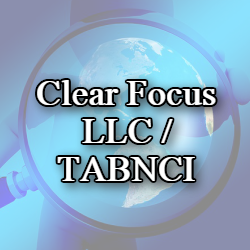To thrive in today’s workplace, teams need tailored strategies for communication and collaboration. DISC assessments—a proven tool that evaluates Dominance, Influence, Steadiness, and Compliance—can transform how teams work together. By understanding behavior through DISC, leaders and teams can foster trust, adapt communication styles, and resolve conflicts effectively.
Here’s how DISC can help you lead your team to success:
- Understand Individual Behavioral Styles
DISC provides a framework for recognizing observable behavior patterns. For example, individuals high in Dominance are task-oriented and direct, while those high in Steadiness value stability and collaboration. This awareness helps leaders adapt their communication and align roles with strengths. A steady communicator might thrive in long-term projects, while a dominant personality excels in high-pressure tasks.
Tip: Use DISC assessments during onboarding to build a foundation of mutual understanding.
- Foster Better Communication
By creating a shared language, DISC reduces misunderstandings.
For instance, a direct communicator may appear abrupt to a detailed-oriented team member. DISC provides insights into these dynamics, encouraging patience and clear messaging.
Tip: Incorporate team training sessions to practice DISC-based communication techniques.
- Depersonalize Conflict
Conflict often stems from clashing behavioral styles. DISC reframes disagreements as differences in approach rather than personal attacks. For example, a high-Compliance team member may feel stressed by a fast-paced high-Influence leader. Understanding these styles helps mediate and depersonalize such conflicts.
Tip: Use DISC insights in conflict resolution to pinpoint the root causes and create solutions.
- Empower Hybrid Teams
In hybrid work environments, emotional proximity—building trust and connection across distances—is critical. DISC tools help leaders understand how different personalities adapt to remote or in-office settings. For example, an Influence-driven individual may struggle with isolation, while a Compliance-driven individual may thrive with clear workflows.
Tip: Tailor hybrid work policies to suit varied DISC profiles, balancing team and individual needs.
- Enhance Team Collaboration
DISC promotes empathy, helping teams appreciate diverse perspectives. When team members understand why others behave the way they do, they can work more cohesively. DISC also helps identify potential friction points and provides strategies to overcome them.
Tip: Regularly revisit DISC profiles to align with evolving team dynamics.
Hybrid teams can also benefit from resources on emotional proximity, a strategy for maintaining strong relationships even in remote settings.
By embedding DISC principles into your leadership approach, you can create a workplace culture rooted in empathy, collaboration, and understanding.
#tabboards #businesscoaching #leadershipmistakes
Gary Brunson
gary@myclearfocus.com
Debra Rider
debra@myclearfocus.com
574.361.2674
Sustainable Growth & Profit Consultant, Coach, Mentor, and Counselor/Therapist for Business Owners and Professionals.


